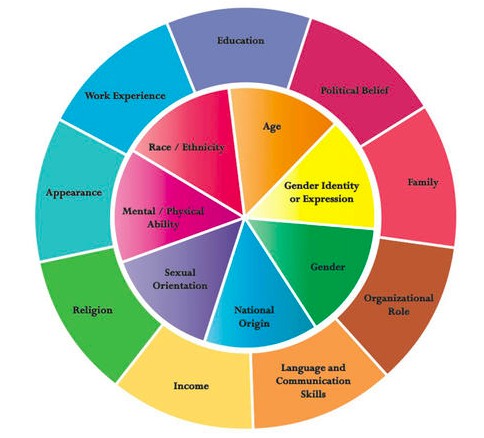International Student Identity and What You Can Do with It
When I was filling out applications to grad schools, quite often I needed to indicate my racial or ethnic group. Even though I ended up choosing “Asian” among choices I was given, it didn’t reflect the way I felt. Whenever I had a chance to use the option “Other”, I was writing “Central Asian”.
This is not a discussion about why people from the countries that were the “Asian part” of the USSR should be considered as a separate ethnic group. This is an example of what one international student can realize about his/her ethnic/national identities in a new country.

Everyone, obviously, has a personal identity that is shaped by their hobbies, job, attitudes, etc. However, ethnic and national identities, in my opinion, are distinct in this list. It is something that is shared by us with the (often large) groups of people. More to it, there could be nothing common between us and these people except ethnic and national identities. These are formed by traditions and customs we observe as we grow, by food and drinks we used to have, by language we speak or used to speak when walking the streets of the city you are from. They are reflected in our first, second, and nth names (where n 3). Sometimes, these identities are not something we can describe or feel all the time. Instead, they can appear on the surface in special circumstances.
The aforementioned necessity to indicate my race or ethnicity in the grad school applications was the first time when I felt this push to a realization of what is my national identity. Being a foreign student in the US, I regularly come back to this question. My case may be quite a unique example. The reasons for that include a combination of my Asian look and Russian accent, noticeable unawareness of the local population about my home country and, sometimes, a lack of interest from them to talk with me about it. Nevertheless, the point I want to raise can be applicable to anyone.
As an international student, I absorb the culture and conditions surrounding me. Sometimes, I have to adapt to them. For example, I learned to introduce myself in such a way that American could pronounce my name. Otherwise, I would end up repeating it 4-5 times, thus, creating an awkward situation. Do I like that people pronounce my name wrong here? Not really… Do I want to force them to say it the way it should be? Also, not really… There regularly occur the situations when foreign students have to find a balance between sacrificing a piece of their national/ethnic identities and keeping nice and smooth conversation. I concluded for myself that it is fine to adapt to the needs and conveniences of others by adjusting the way I talk and interact. At the same time, I always keep inside of me the fact that I am from Kazakhstan, that I consider myself belonging to the Central Asian ethnic group and that the first language I started to speak was Russian.
It is up to your own judgment whether you want to forget your national identity and dissolve in the local environment or to persistently keep everything around you the way it was in your motherland or to try to find a balance. Just remember that whatever you decide for yourself will be a large part of your personality.
Written by Alisher Duspayev
Summer Orientation Peer Advisor
Graduate Student
Kazakhstan
Comments
Post a Comment